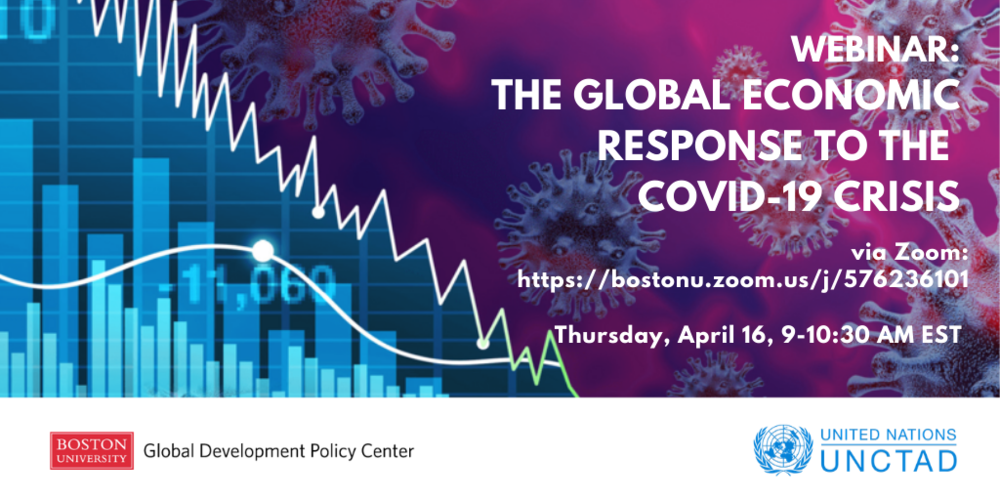Putting Developing Countries in the COVID-19 Response
The COVID-19 crisis is now a global one that has also morphed into larger and more global economic and social crisis than the financial collapse of 2008-2009. High income countries have done well to backstop their financial systems and have also begun to advance bold stimulus packages for recovery. However, emerging market and developing countries lack the wherewithal for such a response and worse—they are experiencing flight of portfolio capital like no other period in their memories. As a result, both the International Monetary Fund (IMF) and the United Nations Conference on Trade and Development (UNCTAD) estimate that these countries have an immediate need of $2.5 trillion.
The IMF and its regional counterparts do not have the financing to support this need, according to a new interactive dataset released today by the GDP Center and colleagues at the Freie Universität Berlin. The two partners have released a trial ‘Global Financial Safety Net Tracker’ that depicts the amount of financing that each country could potentially access in times like these, and is poised to track the use of these facilities as the crisis continues to unfold. Engage with the interactive database on our web page to zoom-in and view the options that developing countries have during this crisis.
In a new working paper, GDP Center researchers propose a multi-faceted emergency set of responses to fill this gap, together with colleagues from the Chinese Academy of Social Sciences Institute for World Economics and Politics, the Center for Sustainable Finance at SOAS (UK) and the Initiative for Policy Dialogue at Columbia University. Read the paper here.
A new interactive “Global Financial Safety Net Tracker” and policy brief entitled “The Global Financial Safety Net Tracker: Lessons for the COVID-19 Crisis from a New Interactive Dataset” assembled by the Latin American Institute at Freie Universität Berlin (LAI) and the Global Development Policy Center at Boston University (GDP Center) shed light on the unequal distribution of the global financial safety net.
To discuss these issues in detail on the eve of the (virtual) annual spring meetings of the International Monetary Fund and the World Bank, the GDP Center and UNCTAD will host a global webinar on April 16 at 9 am EDT. Use this link to access the zoom meeting.
Recent op-eds on these topics have been featured by Brookings, the Financial Times, and the United Nations.
